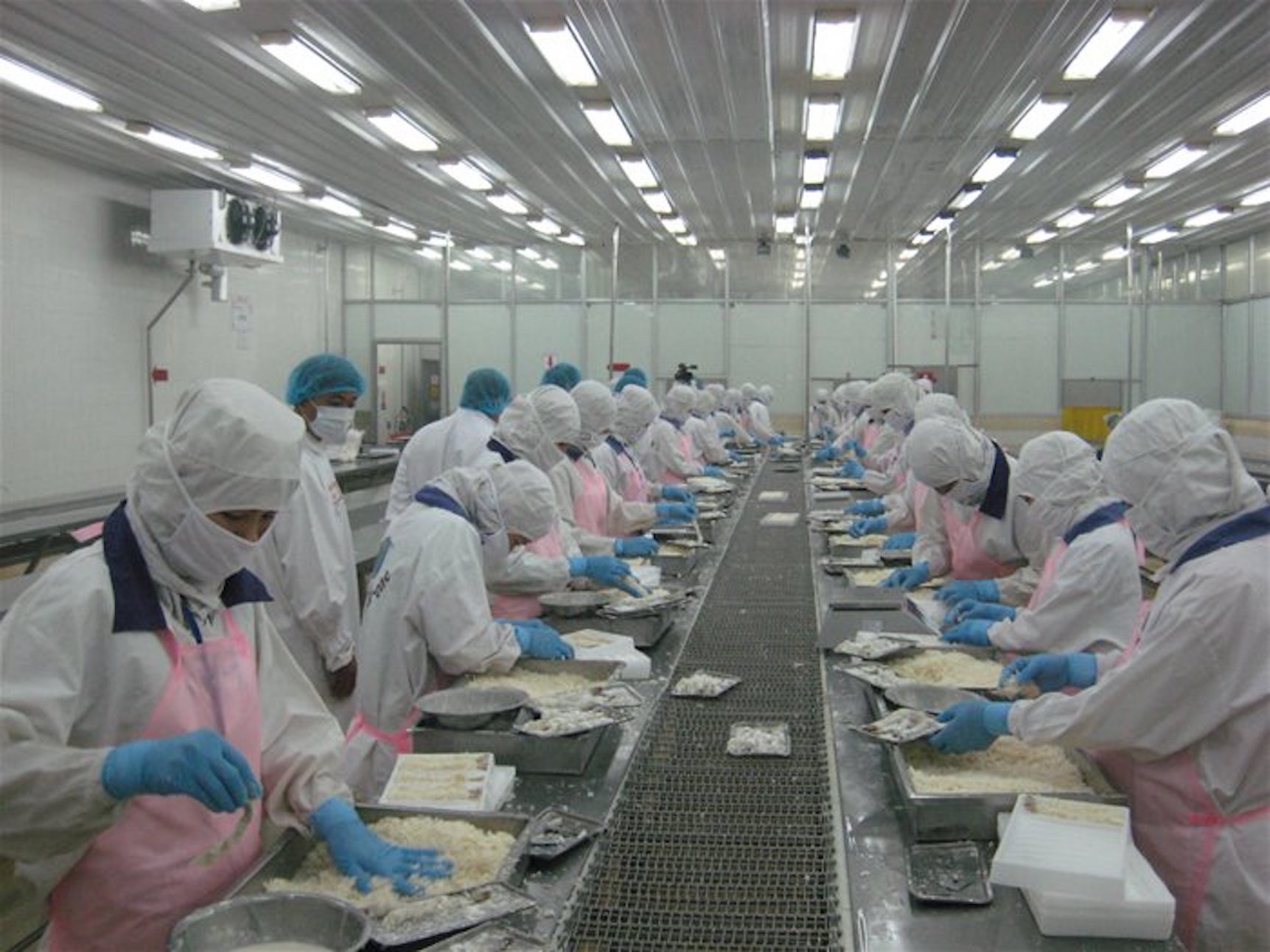HCMC – The revenue target of US$10 billion for Vietnam’s fishery export may not be met as business conditions are expected to continue to worsen until the third quarter of the year.
According to statistics from the Vietnam Association of Seafood Exporters and Producers (VASEP), seafood shipments from January to May reached over US$3 billion, down 30% versus the same period last year. Exports to major markets decreased 10% to 50%.
Exports to the U.S. market dropped by 50% year-on-year, followed by the European and Chinese markets with respective plunges of 32% and 25%.
Key export items also faced double-digit falls. Shrimp exports slid the most, falling by 34% to US$1.2 billion against the previous year. Whiteleg shrimp contributed US$900 million, or 74%, to the overall value, a 36% slump. Black tiger shrimp accounted for 15% of the total value, with US$180 million, dropping by 29%. Lobster and other varieties plummeted by 41% year-on-year, totaling US$134 million.
Shrimp shipments to major markets slipped between 28% and 50%, with the EU, U.S., and China experiencing the steepest declines of 49%, 44%, and 25%, respectively.
Exports of Tra fish and tuna also edged down by around 30% compared to the same period last year, reaching US$841 million and US$317 million, respectively.
Foreign shipments of squid and octopus recorded the smallest decrease, down by 13% year-on-year, reaching US$239 million.
These figures were released by VASEP at a membership meeting held on June 12.
Truong Dinh Hoe, General Secretary of VASEP, said that orders for fishery products from foreign markets have plummeted since late 2022, and the situation has worsened in the first half of 2023, resulting in supply surpassing demand in overseas markets.
Weak demand has led to export prices of Vietnamese shrimp and Tra fish falling on the international market. However, sales remain stagnant due to heightened competition with seafood products from Ecuador and India.
Nguyen Thi Thu Sac, chairwoman of VASEP, said that high inflation and the banking crisis in the U.S. have significantly impacted its economy and seafood demand. Furthermore, global food prices have become volatile due to supply chain disruptions caused by the ongoing Russia-Ukraine military conflict and monetary tightening resulting from runaway inflation in major economies.
Sac predicted that business conditions may further deteriorate in the third quarter of the year, instead of recovering as previously anticipated. She emphasized the need for appropriate actions to support seafood exporters in restoring production.









